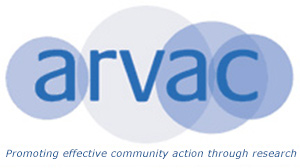Insider and outsider research
The traditional view of research is that it is something done by researchers – people who are paid to find out things. These could be market researchers who stand in the town centre and ask people’s views on, for example, what toothpaste they use. Or they could be academic researchers who work for a university and who are studying a subject in depth, over many years, for example, what the patterns of coastal erosion are in a particular area. Or they could be from a health authority or trust researching the levels of childhood obesity in a community. These are all ‘outsiders’, people with proven knowledge of a subject and they will collect information about that subject, often using numbers and statistics and these are seen as objective or scientific research processes.
Increasingly, in the arena of social research, there is less of a gap between the people who do the research and the people whose experiences are the subject of research. There are a number of different approaches:
- Co-production – where people with proven expertise, such as nurses or doctors, work with people who have lived experience of a health condition and where that experience is regarded as having the same value as the qualifications or experience of the medical practitioners
- Ethnographic research – where the researcher is positioned as part of the community that is being studied and uses informal methods to collect information, such as observation
- Community based participatory research – where communities are actively involved in the research and use methods that can involve a range of different people in different ways – not just answering a questionnaire
These approaches are more likely to be based on people’s experience and rely more on narratives and stories to describe an area or a situation. While a toothpaste company may need hundreds or even thousands of responses to be able to find out information about their products, these approaches to social research may only need evidence of a few people’s experiences but in much greater depth – what is known as ‘rich’ data. The importance is that the researchers have access to the right people and use appropriate methods to enable those people to share their stories and experiences. These researchers are more frequently ‘insiders’, people who are known to the community, because they are from the area or have a long-term relationship with it.
Definition of ethnographic research
- Takes place in real life situations
- Uses informal methods such as observation and conversations
- Doesn’t start out with set assumptions – follows the findings
- Has a small number of cases – can be just one
- Tells the story of what was found – doesn’t use numbers or statistics
